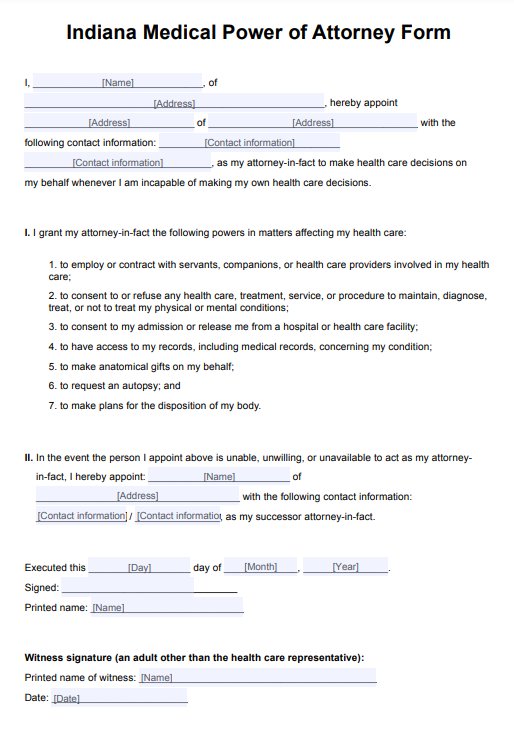When creating a medical POA, it is important to include a designated agent who will make health care decisions on the patient's behalf if the patient is unable to do so. The document should also outline the scope of decision-making power given to the agent, their personal details, and any specific instructions, signing requirements, or limitations for their role.

Indiana Medical Power of Attorney Form
Download a free Indiana Medical Power of Attorney Form template to help your patients make crucial life and healthcare decisions with full authority in this customizable document.
Indiana Medical Power of Attorney Form Template
Commonly asked questions
Carepatron allows you to modify these attorney forms to fit your patient's needs and preferences. This ensures the document accurately reflects their wishes and provides a personalized approach to their advance directives and care planning documents.
You should use the Indiana Medical Power of Attorney Form when your patients wish to designate a trusted individual to make healthcare decisions on their behalf if they become incapacitated. This form is essential in various situations, such as when patients are aging and may encounter future medical issues, when diagnosed with a serious illness, during hospitalization or medical procedures, or when they are unable to make their own decisions due to mental incapacity. Utilizing the Indiana Medical Power of Attorney Form ensures that your patients' healthcare preferences are respected and followed, even if they cannot communicate their wishes.
EHR and practice management software
Get started for free
*No credit card required
Free
$0/usd
Unlimited clients
Telehealth
1GB of storage
Client portal text
Automated billing and online payments











